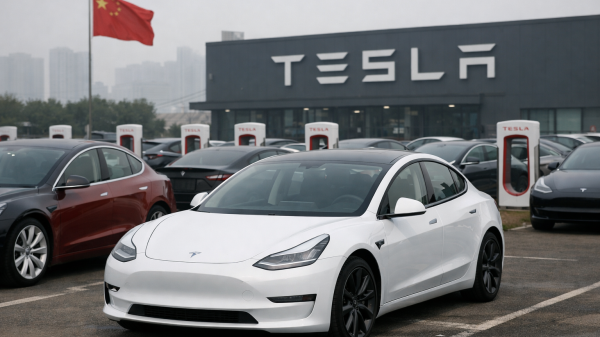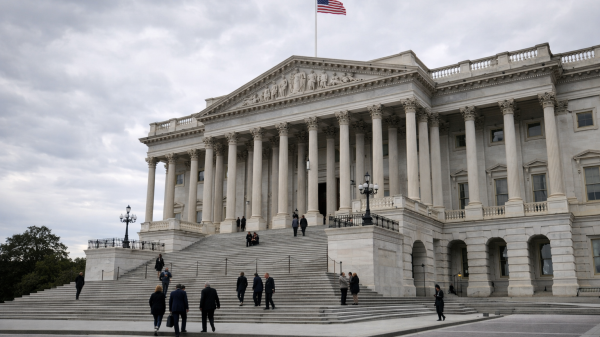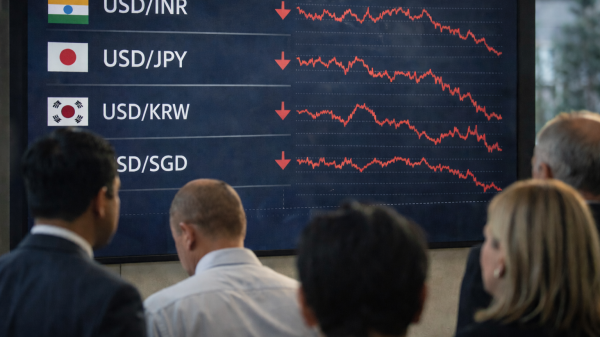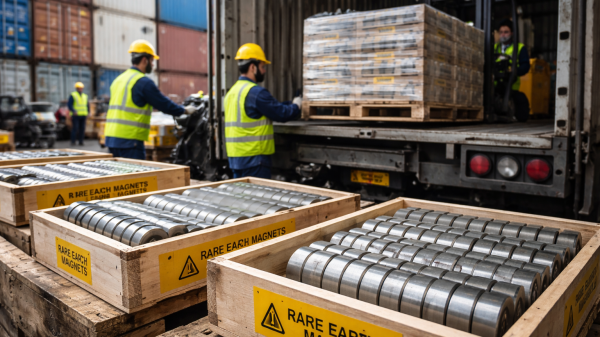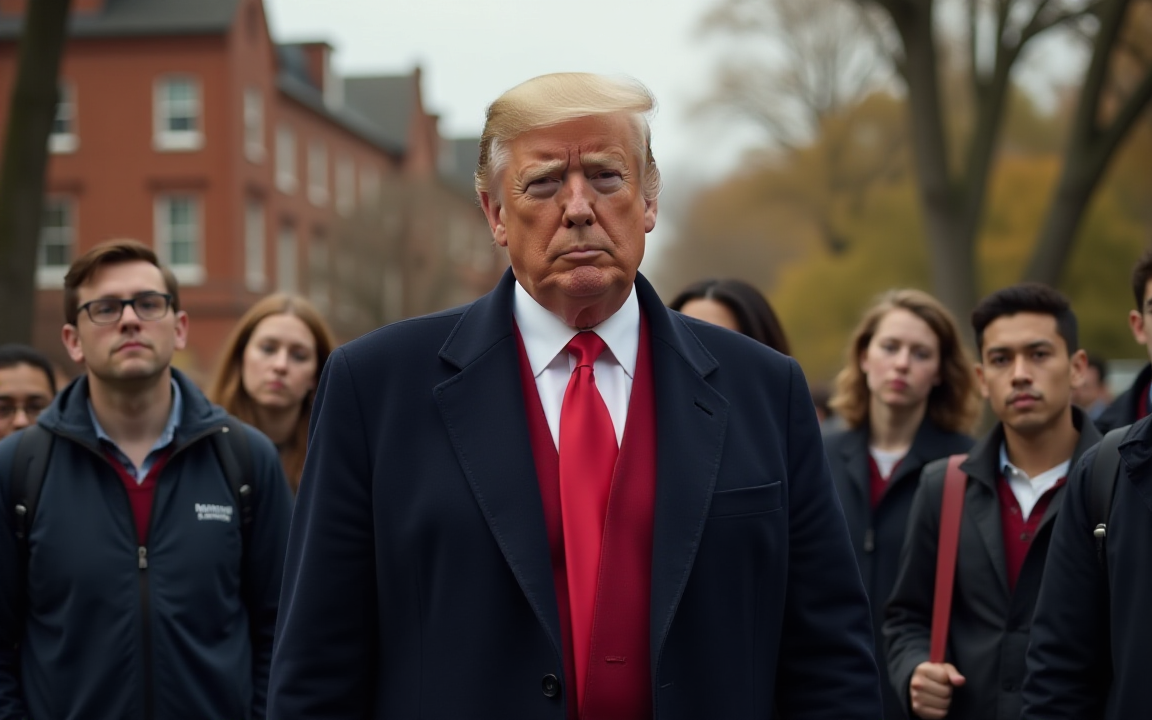In a significant legal setback for President Donald Trump’s trade agenda, a US trade court issued a sweeping ruling on Wednesday, blocking most of his administration’s across-the-board tariffs on imports from US trading partners.
The court found that the president had overstepped his constitutional authority by unilaterally imposing these duties.
The Court of International Trade, in its landmark decision, affirmed that the US Constitution grants Congress the exclusive authority to regulate commerce with foreign nations.
This power, the court asserted, is not superseded by the president’s emergency powers, which are intended to safeguard the US economy under specific, extraordinary circumstances.
“The court does not pass upon the wisdom or likely effectiveness of the President’s use of tariffs as leverage,” a three-judge panel stated in the decision, which issued a permanent injunction on the blanket tariff orders Trump has implemented since January.
“That use is impermissible not because it is unwise or ineffective, but because federal law does not allow it.”
The judges further mandated that the Trump administration issue new orders reflecting this permanent injunction within 10 days.
Demonstrating its intent to contest the ruling, the Trump administration promptly filed a notice of appeal and raised questions about the court’s authority.
With immediate effect, the court invalidated all of President Trump’s tariff orders since January that were predicated on the International Emergency Economic Powers Act (IEEPA).
This law is designed to address “unusual and extraordinary” threats during a declared national emergency.
It is important to note that the court was not asked to rule on certain industry-specific tariffs imposed by Trump on items like automobiles, steel, and aluminum, as those were enacted under a different statute.
Decisions emanating from the Manhattan-based Court of International Trade, which specializes in disputes involving international trade and customs laws, are subject to appeal at the US Court of Appeals for the Federal Circuit in Washington, D.C., and can ultimately reach the US Supreme Court.
Trade turmoil and White House rebuttal
President Trump has positioned the imposition of tariffs on US importers of foreign goods as the cornerstone of his ongoing trade wars.
This policy has severely disrupted global trade flows and caused significant volatility in financial markets.
Companies of all sizes have found themselves navigating a challenging landscape, whipsawed by the swift imposition of tariffs and subsequent, often sudden, reversals as they attempt to manage complex supply chains, production schedules, staffing levels, and pricing strategies.
Responding to the court’s ruling, a White House spokesperson on Wednesday maintained that US trade deficits with other countries constitute “a national emergency that has decimated American communities, left our workers behind, and weakened our defense industrial base – facts that the court did not dispute.”
Kush Desai, the spokesperson, added in a statement, “It is not for unelected judges to decide how to properly address a national emergency.”
Financial markets reacted positively to the ruling.
The US dollar rallied following the court’s order, gaining ground against currencies such as the euro, yen, and Swiss franc.
Wall Street futures also rose, and equity markets across Asia saw an uptick.
Implications for Trump’s trade strategy
If the court’s ruling stands, it will create a substantial impediment to President Trump’s strategy of using steep tariffs as leverage to extract concessions from trading partners.
The decision injects deep uncertainty into multiple, simultaneous trade negotiations with major economic blocs and countries, including the European Union and China.
President Trump has consistently promised Americans that his tariff policies would repatriate manufacturing jobs to US shores and shrink the nation’s $1.2 trillion goods trade deficit—key pledges from his election campaign.
Without the immediate leverage afforded by tariffs ranging from 10% to 54% or higher, the Trump administration will be compelled to find alternative forms of leverage or adopt a more measured, potentially slower, approach to its negotiations with international trading partners.
Businesses harmed, states challenge presidential overreach
The court’s ruling stemmed from a pair of lawsuits. One was filed by the nonpartisan Liberty Justice Center on behalf of five small US businesses that import goods from countries targeted by the duties.
The other was brought by a coalition of 12 US states.
The plaintiff companies, which include diverse businesses such as a New York wine and spirits importer and a Virginia-based manufacturer of educational kits and musical instruments, have argued that the tariffs would severely harm their ability to conduct business.
In their decision, the judges wrote, “There is no question here of narrowly tailored relief; if the challenged Tariff Orders are unlawful as to Plaintiffs they are unlawful as to all.”
At least five other legal challenges to the tariffs are currently pending.
Oregon Attorney General Dan Rayfield, a Democrat whose office is leading the states’ lawsuit, characterized Trump’s tariffs as “unlawful, reckless and economically devastating.”
He added in a statement, “This ruling reaffirms that our laws matter, and that trade decisions can’t be made on the president’s whim.”
President Trump has asserted broad authority to set tariffs under the IEEPA, a law historically employed to impose sanctions on U.S. adversaries or freeze their assets.
Trump is the first US president to utilize IEEPA for the purpose of imposing tariffs.
The Justice Department had argued for the dismissal of the lawsuits, contending that the plaintiffs had not yet suffered harm from tariffs they had not paid and that only Congress, not private businesses, could challenge a national emergency declared by the president under IEEPA.
In imposing the tariffs in early April, President Trump had declared the trade deficit a national emergency, justifying his 10% across-the-board tariff on all imports, with even higher rates for countries with which the United States has the largest trade deficits, notably China.
Many of these country-specific tariffs were paused a week later.
On May 12, the Trump administration announced it was also temporarily reducing the steepest tariffs on China while working towards a longer-term trade deal, with both countries agreeing to cut tariffs on each other for at least 90 days.
The post US court rules Donald Trump overstepped on tariffs, issues permanent injunction appeared first on Invezz







